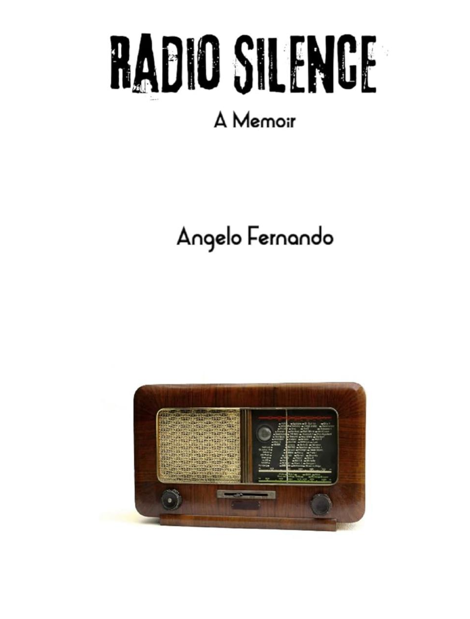by Tyron Devotta
I’ve known Angelo for close on fifty years. He’s always been a prolific writer—and, besides that, a wandering soul, a traveler. So it comes as no surprise that 'Radio Silence' is as much a physical journey as it is a poetic one, chronicling the many roads he took.
This is a memoir—but not in the usual sense. It has one essay, many poems, and at times reads like a travel log, full of cryptic impressions of the times he lived through. The poem at the beginning of the book, “Bodies of Evidence”, takes us back to the 1972 insurrection in Sri Lanka. We were just schoolboys then, and yes, the mention of valve radios is nostalgic. So too are the memories of food shortages—of how we islanders survived on manioc (tapioca), and how jaggery stood in for sugar.

Ironically, the rebels of 1972 now form a popular majority government on the island.
Angelo carries us forward to 1987, when the same party, were again on the prowl, this time over a geopolitical turn and turmoil prevailed in the south of the country. By then, Angelo had come of age. Enduring curfews, navigating a changing world, he wrote his way through it. One poem from this period includes a line that might raise eyebrows in today’s light—but back then, those kinds of remarks about girls were commonplace. It was a different world.
As ever, Angelo’s poetry drifts between the decipherable and the cryptic. Some lines make immediate sense; others leave you adrift—waiting for the meaning to rise, slowly, from between the lines. That’s part of the point. The words form a map of his restless spirit.
In London, June 1989, he writes: “This is not my address after all.”
Still wandering—in Texas, 1991—he pens: “You sink your foot into alien soil.”
And for those of us who lived through Colombo, 1983, the memories remain carved in our minds:
“Strangers who came marching, searching, unforgiving,
our numbers on the wall,
looking for people they never knew.”
At some point in every man’s life, there comes a moment when death brushes close. For Angelo, that moment lies on page 12. He doesn’t name himself in the verse—there’s no melodrama—but I know what happened. I know it was real.
Elsewhere, in “Never Happened”, he writes about the torment of a friend. The pain is real, but again, cloaked in language that forces the reader to lean in and excavate.
This collection flashes through moments in time—childhood, youth, age. Life, as they say, has dealt him its fair share of aces and knaves. And in these poems, he opens up. Not all the way. Sometimes only through riddles and suggestion. But it’s there.
Take your time with it. Read slowly. It’s a book full of feeling, written by a human. Part confessional, part autobiographical—a journal of a man who has wandered across continents, lived many lives, and chosen, at times, to hide his truths inside poetic cipher.

Well done, Angelo!
We’re now in a world where machines compose sentences, and as we begin to accept their sharp clarity, their flawless polish, we risk losing something essential—the soul of writing.
Let us hope this isn’t the last of it. Let us hope people continue, as Angelo Fernando has done, to journal their lives—raw, flawed, and beautifully human.



